We Are Living in a Slow-Moving Explosion

Ever since I was a child, I’ve had a question that really bothers me: Why is everything changing so quickly?
I was born in 1980, and by the time I was 10 years old, I was astonished at how quickly technology was advancing. When I was in kindergarten, we had an Atari. A few years later, we got a Nintendo, which was way better. And by 1990 I was looking forward to the Super Nintendo, which was supposed to be 4 times better than the original.
It seemed inevitable that technology would keep improving exponentially, resulting in a world where no one would have to work and all needs would be taken care of, just like in one of my favorite shows, Star Trek: The Next Generation.
All this made me very optimistic about the future, but it also made me perplexed about the past. In school, I learned that modern humans had been around for tens of thousands of years, and probably much longer.
In all that time, the level of technology barely changed. Sure, there were breakthroughs every few millennia, but for the average person, the year 1000 AD wasn’t much different from the year 1000 BC. It seemed that technology didn’t start advancing significantly until the 1700s. But why?
I asked my dad about this, and he said it was because of American democracy. Before 1776, there were no “free countries”, but thanks to the founding fathers, people in America were free to do what they wanted for a living, and that unleashed the power of human ingenuity.
I accepted this explanation, but when I got older, I learned that the founding fathers didn’t invent democracy. In fact, it had been around since ancient Greece, and maybe longer. There had to be some other explanation.
As I entered adulthood, went to college, and started a family, I watched as the global population rose higher and higher, going from 6 billion to 7 billion to nearly 8 billion. However, I was too busy to worry about it.
At some point, I realized that part of the reason technology was advancing so quickly was because of specialization. With more people able to focus on specific fields of study, it was possible to make more complicated technologies. But that didn’t explain why there were suddenly so many more people.
Then a few years ago, I found the answer: fossil fuels. I already knew that fossil fuels contained a lot of energy, but I didn’t realize how much. I learned that one barrel of crude oil contains the energy equivalent of over 11 years of human labor.
Once I realized this, it became perfectly obvious why the global population, along with technology, exploded over the past two centuries. Suddenly, humans had access to billions of energy slaves.
These energy slaves did all sorts of work for us. They pushed trains, tilled fields, cranked generators, moved assembly lines, carried heavy objects, and countless other things. With all these billions of energy slaves, we were able to grow more food. And with more food comes more people.
Today, we take these energy slaves for granted. It seems like they’ve always been here, so it feels like they always will be. But over the next few decades, our energy slaves are going to start retiring, leaving humans to do all the hard physical labor themselves.
What we’re witnessing right now is a slow-moving explosion that began back in the 1700s. Everyone alive today is part of this explosion, and once the fuel feeding the explosion is gone, it will dissipate.
This explosion is only slow-moving from our perspective. On a geological timescale, it’s incredibly rapid, as you can see below.
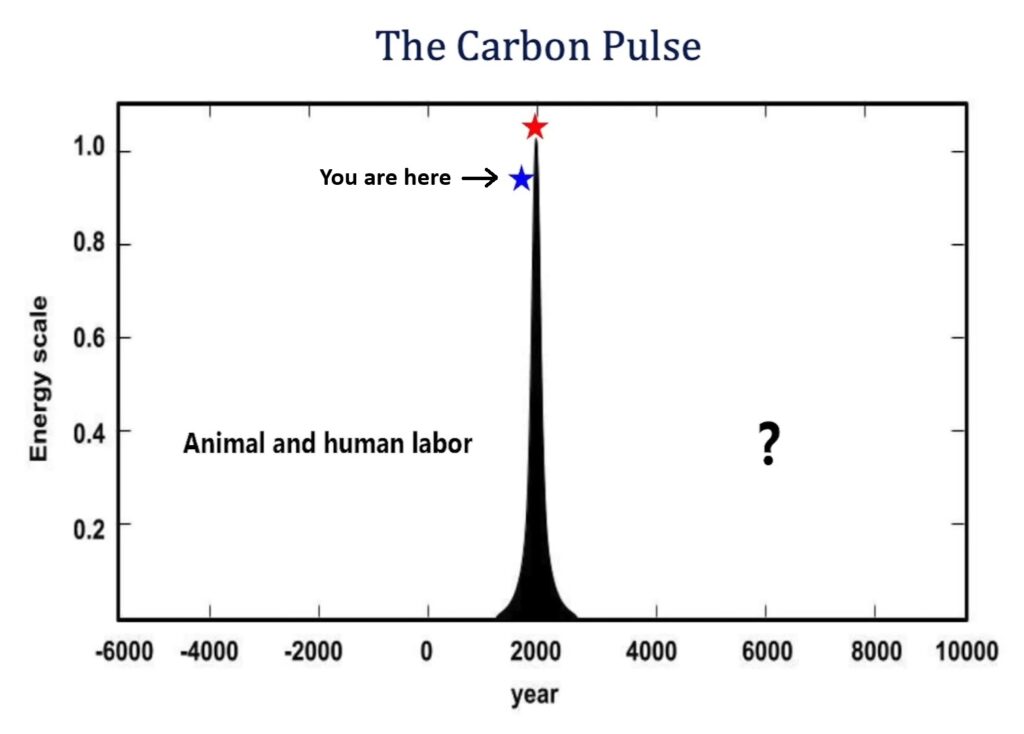
When I explain this to people, they think I’m using explosion as a metaphor, but I’m not. I mean a literal explosion.
The definition on Wikipedia says, “An explosion is a rapid expansion in volume of a given amount of matter associated with an extreme outward release of energy, usually with the generation of high temperatures and release of high-pressure gases.”
How does that not describe what’s been happening over the last two centuries? An explosion starts small, then it expands outward, consuming combustible materials at an exponential rate. Once those materials are gone, it begins to dissipate, leaving behind a charred landscape.
Once you understand this, you’ll begin to see the slow-moving explosion everywhere. Just look at our global energy consumption over the past two centuries:
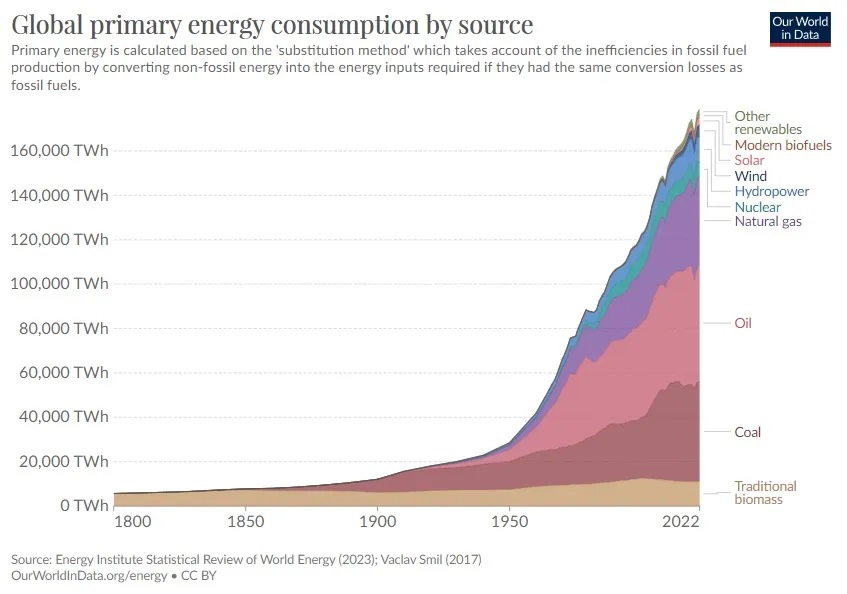
And here are CO2 emissions over the past few centuries:
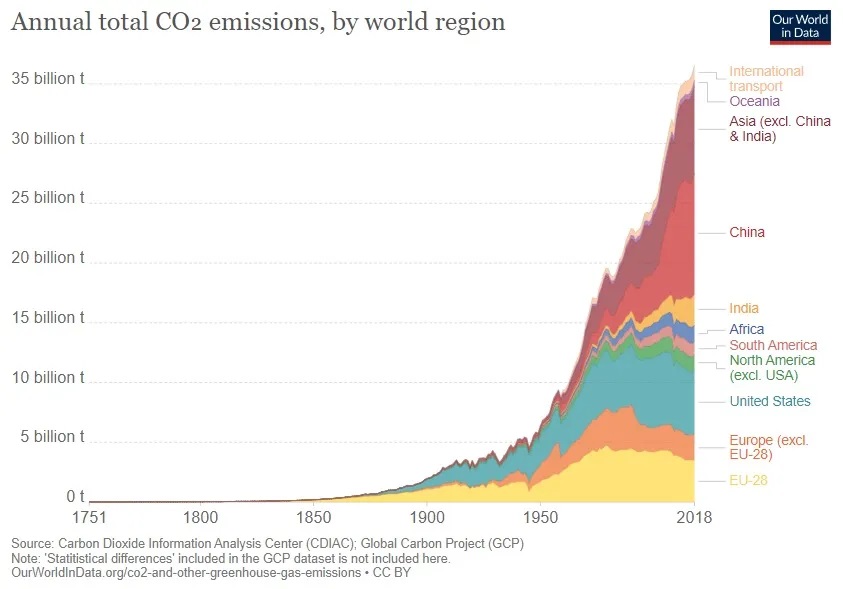
And here you can see the rise in temperature over the past two centuries compared to the past two millennia:
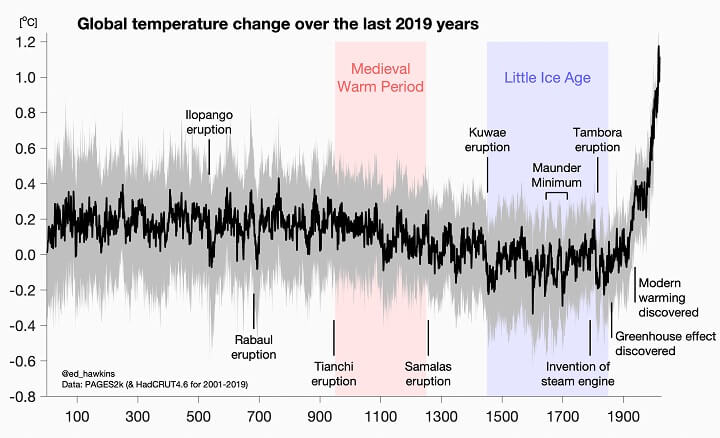
As climate deniers are eager to point out, the climate has changed before, and that’s true, but it’s never changed this quickly. Look at how quickly CO2 is rising compared to the last two deglaciations:
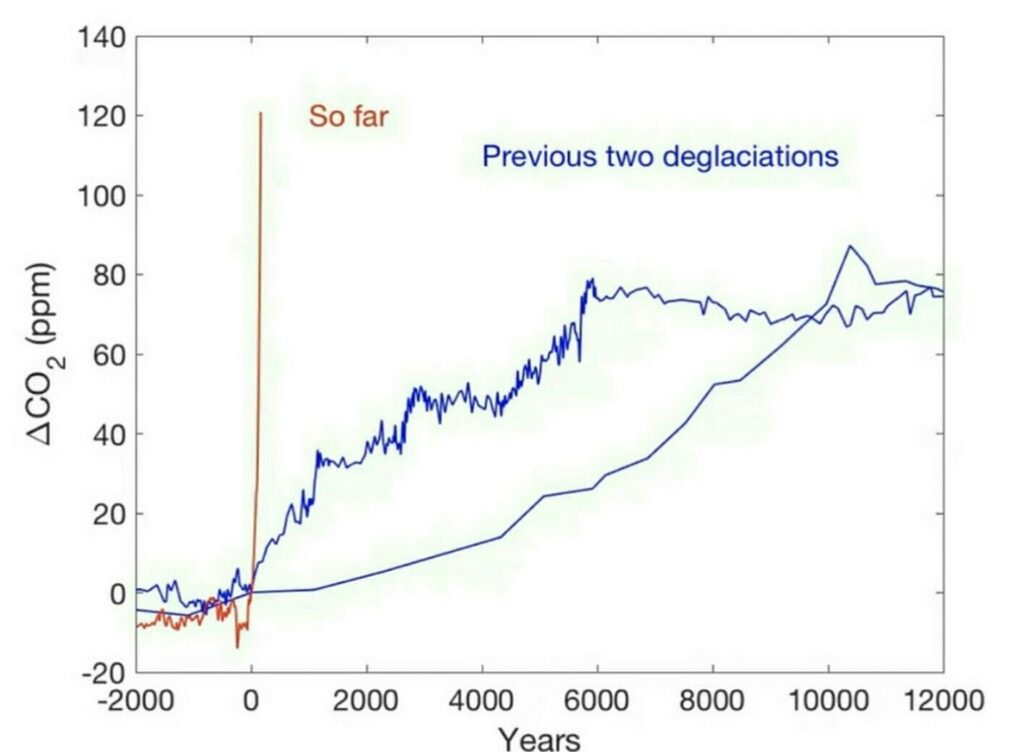
And remember, this slow-moving explosion isn’t just affecting the climate; it’s affecting everything. Here are some earth-system trends over the past 270 years:
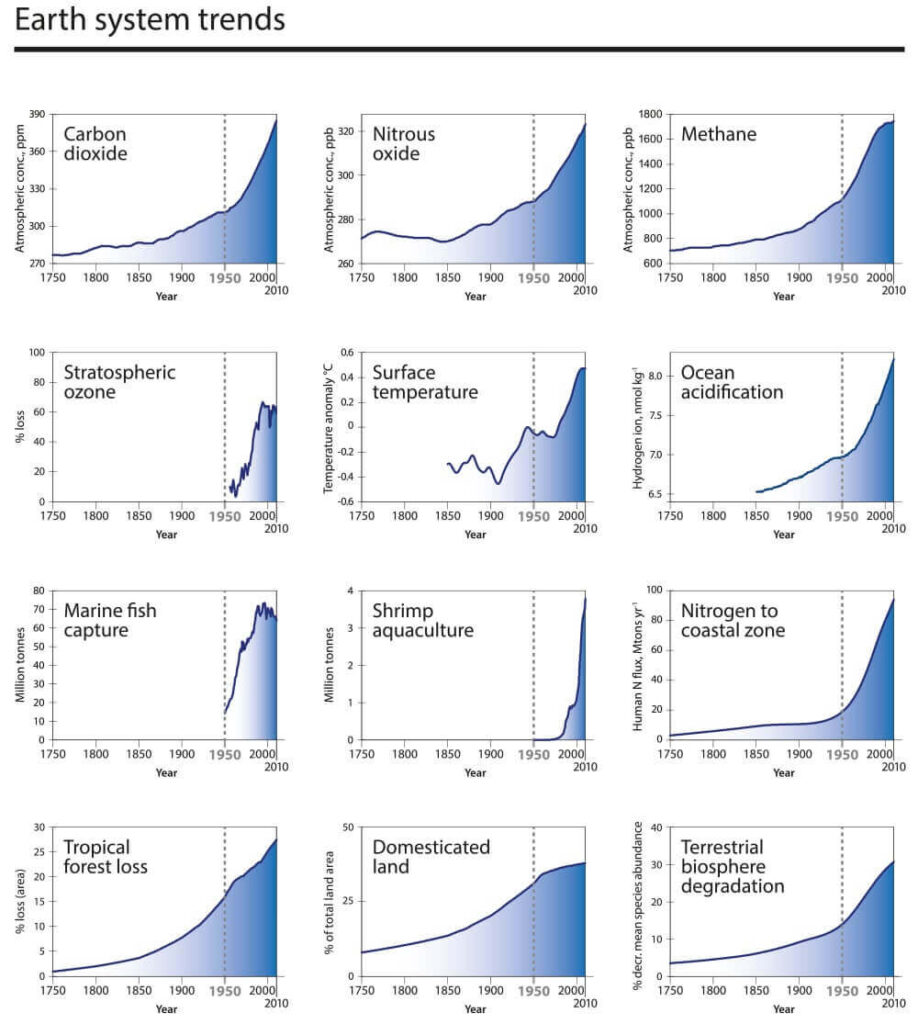
And here are some socio-economic trends over the past 270 years:
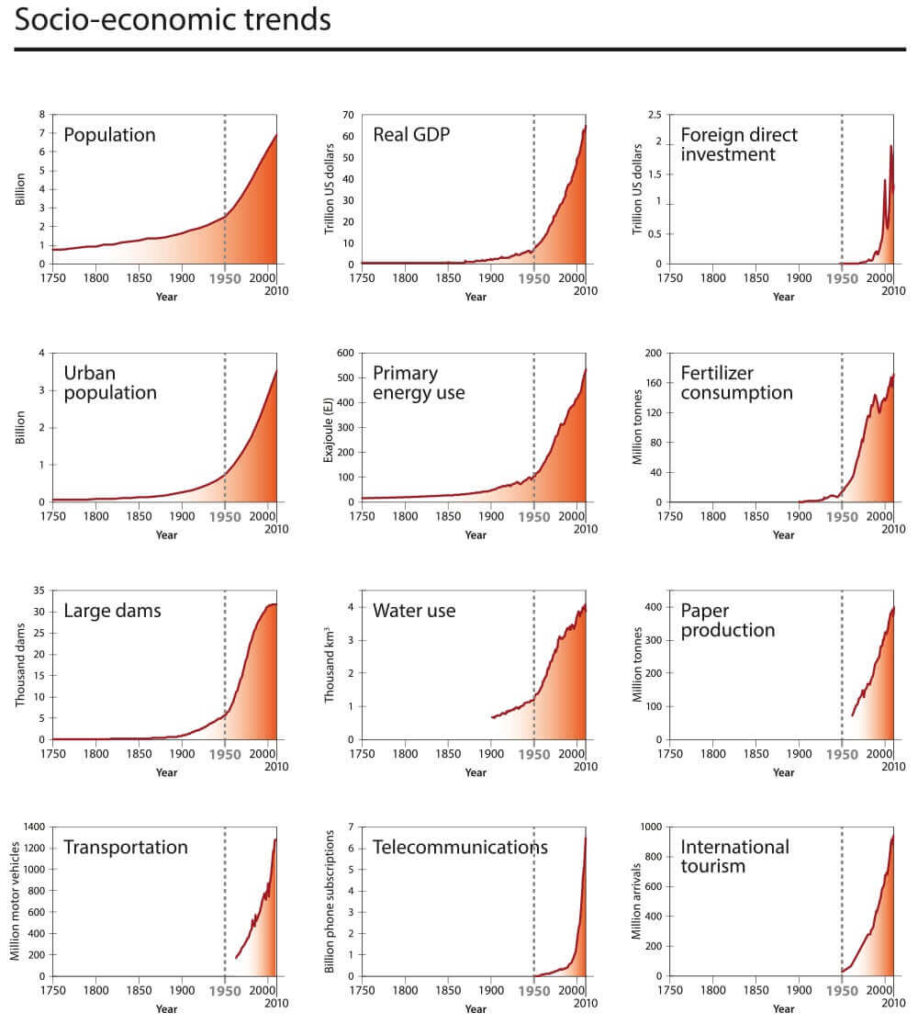
And finally, here is the human population over the past two centuries:
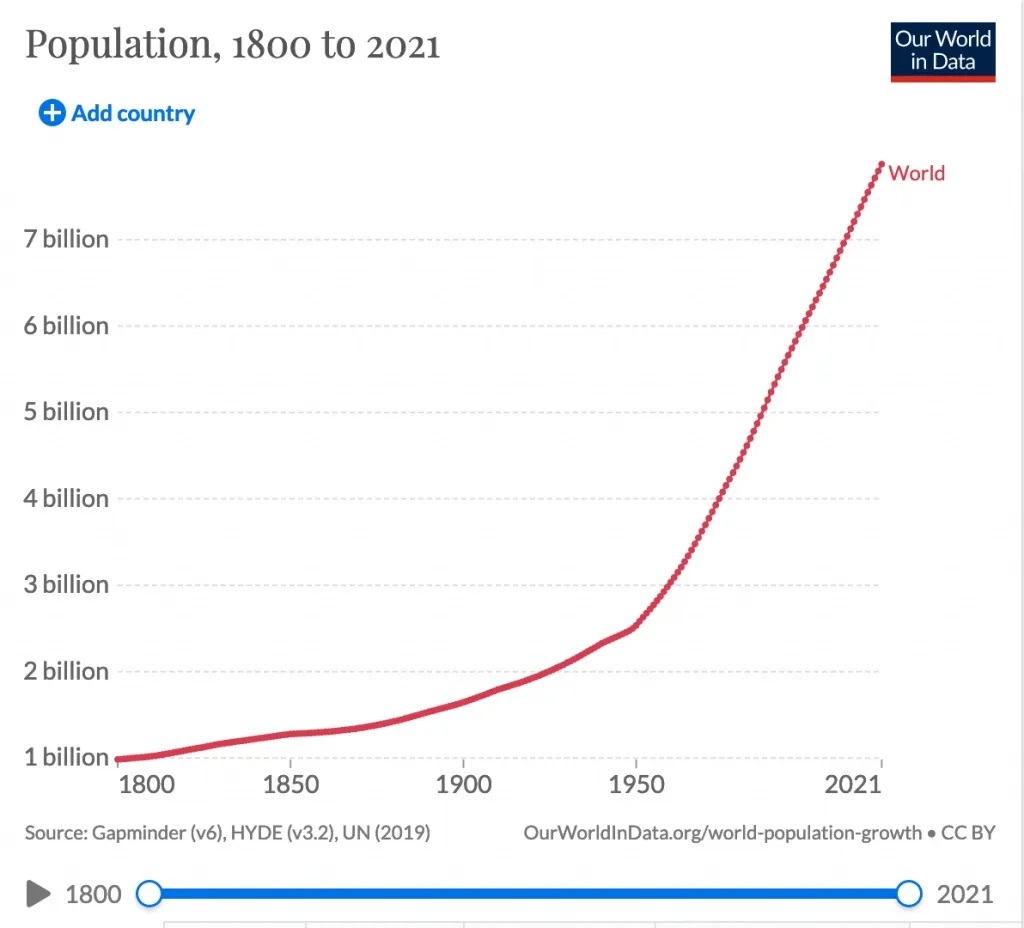
Obviously, this can’t continue forever. The question is, how long do we have before the explosion dissipates and the global population falls back to a more sustainable level?
Not long. Although the burning of fossil fuels will probably continue for several more decades, the number of energy slaves available to humans will begin to decline within 10 years, as you can see below:
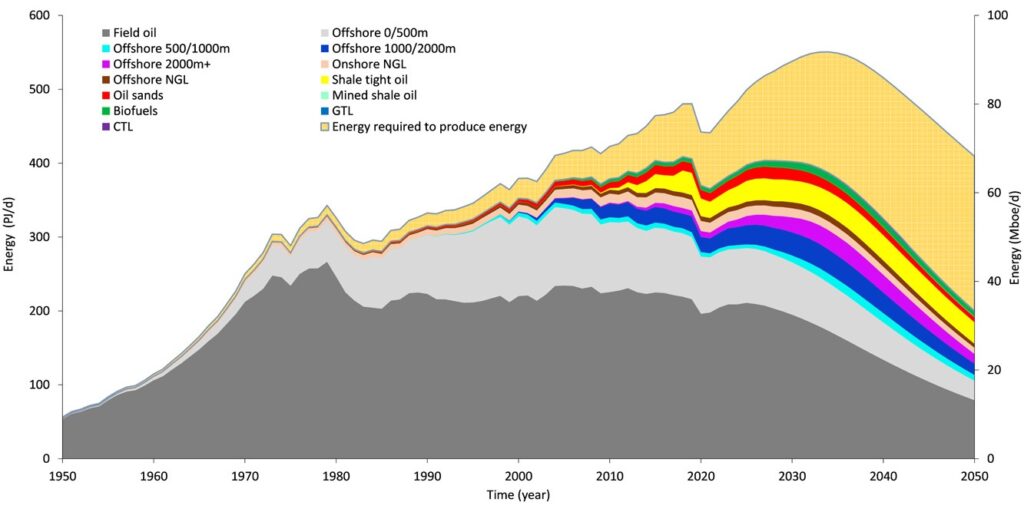
Given that fossil fuels are essential for the modern world, it’s safe to say that civilization will collapse in tandem with the decline of fossil fuels.
Some people say renewables will keep society chugging along indefinitely, but they forget that not only do we use fossil fuels to build renewables, we use fossil fuels to dig up the rare-earth metals and transport them around the world.
Unless we discover some new source of energy, the explosion is going to start dissipating in the next few years, bringing a rapid decline in living standards as people are forced to do the physical labor their invisible energy slaves did for them.
We were warned about this outcome over 50 years ago when researchers at MIT published their Limits to Growth report. Their models showed that under a business-as-usual scenario, the global population would begin declining by 2030.
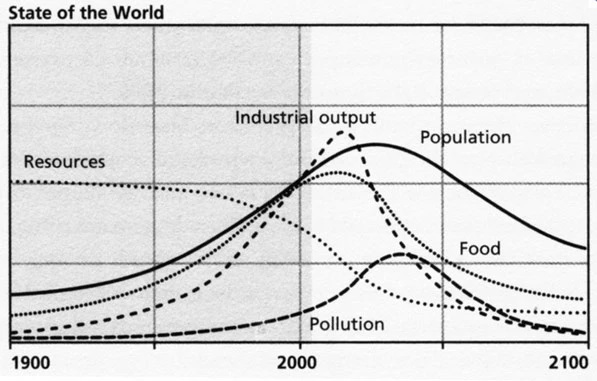
Unfortunately, the population decline will probably be much steeper than they predicted as they didn’t take into account the effects of climate change.
The latest climate research suggests we have underestimated the risk of simultaneous crop failures, and one UN expert believes climate change will hit the world food supply before we reach 1.5°C.
And before you say, “Oh, that’s still a ways off,” you should know that some world-renowned climate scientists believe the 12-month mean global temperature will cross the 1.5°C threshold within a year.
This slow-moving explosion, which seemed like it would continue forever, is coming to an end. Exactly what happens next is impossible to predict because we’ve never been in this situation before.
One thing’s for sure: The aftermath of an explosion is not a pretty sight.





Member discussion